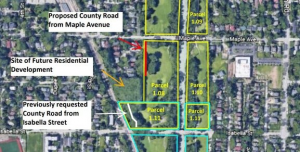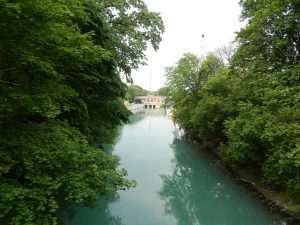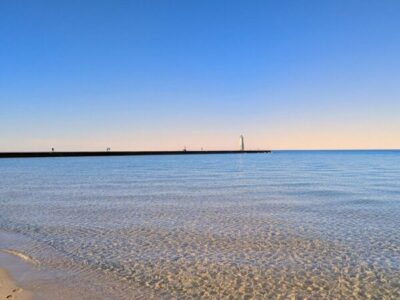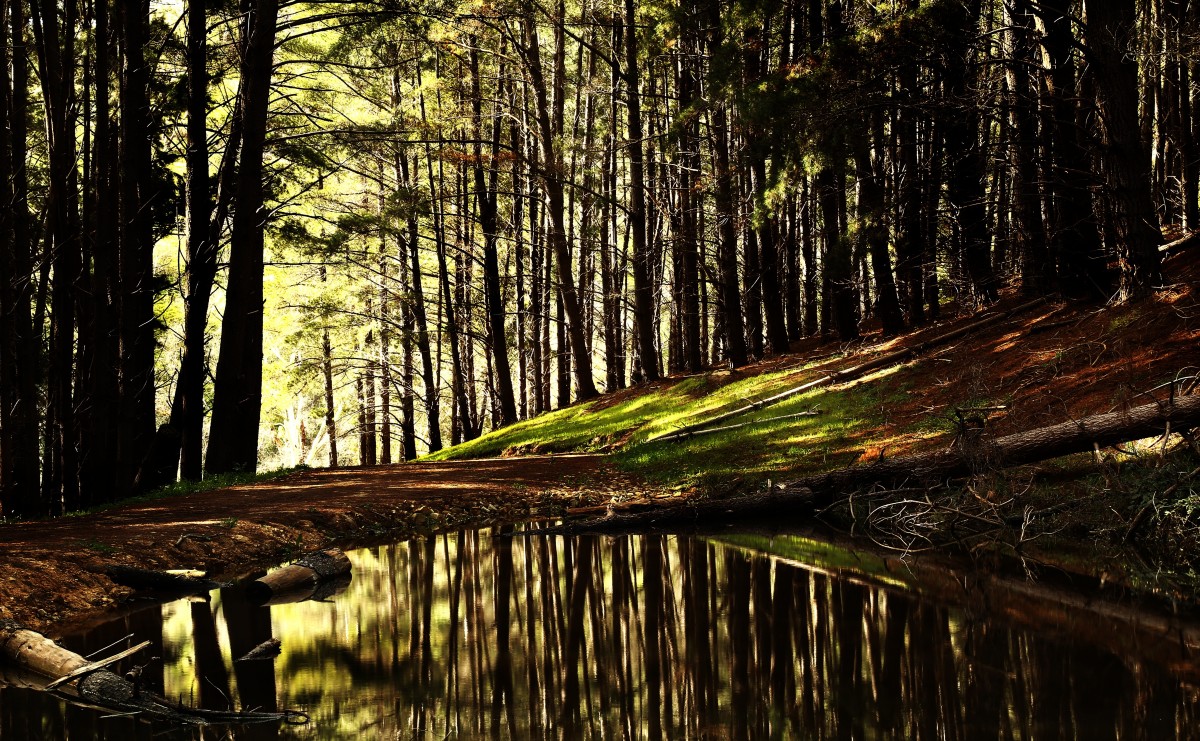
Illinois development process is similar to the continued pressure on wetlands in other Great Lakes states.
Isabella Woods is just a spit of land in greater Chicagoland’s sprawling Cook County.
But it contains old-growth oak trees and wetlands and serves as an ecologically significant natural area in Chicago’s densely populated northern suburbs. Its story and ultimate fate speak volumes about how we value urban natural areas that are under constant pressure from developers.
The state agency that owns the property that is home to Isabella Woods, the Chicago Metropolitan Water Reclamation District (MWRD), recently voted to allow a road to be built through the property that would serve the needs of private real estate development.
The move allows the family that owns the 1.1-acre site to sell to developers. Without the road, development was prohibited.
This is the second time MWRD has ruled on the fate of the woods. In 2017 a similar proposal was defeated but it resurfaced earlier this year and was approved in a 5-4 vote of commissioners.

David J. Walsh, Commissioner Metropolitan Water Reclamation District, Photo by mwrd.org
The next step is for the developer to seek applicable permits required to build on the land, according to MWRD spokesperson Allison Fore.
Opposition to the move has been intense and legal challenges are likely. Commissioner David Walsh voted to allow the road and he said he “doesn’t have a fear of litigation. We have 20 capable lawyers on staff. We deal with litigation all the time.”
In justifying his vote in favor of the road, Walsh said the issue is not central to MWRD’s core mission and the dispute is best-resolved in another venue.
Mission Failure
Two key Chicago conservation groups railed against the decision.
Margaret Frisbie, executive director of Friends of the Chicago River, said the decision reflects a failure of MWRD to fulfill its mission that includes improving water quality and “protecting businesses and homes from flood damage.”
The decision, she said, harms open space that provides habitat for wildlife and serves as an important community asset, in part, because it absorbs stormwater.
The Isabella Woods property is adjacent to the Chicago River’s North Channel. The Friends organization in recent years has been more supportive of the MWRD based on the agency’s improved environmental stewardship after years of being at odds with the agency over Chicago River sanitation.
Another environmental advocacy group had similar concerns about the MWRD decision, which “takes us in the wrong direction,” according to Openlands Senior Counsel Stacy Meyers.
The Chicago-based advocacy group works with government agencies on stormwater management programs.
“It’s contrary to the commitment by (MWRD) and its partners in revitalizing Chicago’s rivers,” Meyers said of the Isabella Woods decision.
But the MWRD’s Fore told Great Lakes Now that the vote can be reconciled with the agency’s ongoing “green” initiatives. The agency “has the authority to determine if a particular easement would unduly impact open space and recreational use,” Fore said.
Flood storage issues
Wetland expert Don Uzarski, a biology professor at Central Michigan University, manages a $20 million region-wide wetlands program under the federal Great Lakes Restoration Initiative.
He said urban wetlands in general “are more degraded than intact forested wetlands but they still offer many ecosystem functions like flood water retention, groundwater recharge and burial of toxicants.”
Uzarski directs Central’s Institute for Great Lakes Research. Wetlands, he said, provide ecosystem services for free but once they’re filled, the water is not cleaned, flood storage is lost, and then the water flows into a sewer where it has to be treated.
When wetlands are filled, Uzarski said, the flood water still has to go somewhere and that tends to be in neighborhood basements. While Uzarski’s comments were not specific to Isabella Woods, he said, “Chicago has plenty of flood storage capacity issues already, it doesn’t need more.”
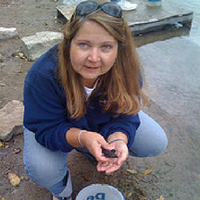
Cheryl Nenn, Photo by Milwaukee Riverkeeper via Gary Wilson
In Milwaukee, Riverkeeper Cheryl Nenn deals with similar issues and acknowledged the tension between developers and the city’s sewerage district when it comes to open spaces along streams, wetlands and shorelines.
But Nenn says the Milwaukee Metropolitan Sewerage District has an innovative Greenseams program which is used to acquire easements on property at risk for development. She says the program allows for water to be better managed and stored where it falls.
Nenn says Greenseams helps prevent flooding and minimizes pollution-causing stormwater runoff. The program has protected 3,700 acres, and the land is often turned over to land trusts for conservation in perpetuity.
Broader harmful wetland trend
Separate from current urban issues, wetlands in general have been increasingly subjected to weakened protections.
Part of the deal Wisconsin made in 2017 to secure the Foxconn tech manufacturing plant included less stringent wetland regulations that would only have to conform to federal requirements. Federal regulations are generally seen as the minimum acceptable standard.
Last week in Michigan in a lame duck legislative session Republican state Sen. Tom Casperson introduced a bill, SB 1211, that would remove 70,000 wetlands statewide from regulation according to Michigan’s Department of Environmental Quality.
“The Casperson bill, if passed will be devastating,” Central Michigan’s Uzarski said.
Deregulation of these wetlands is not consistent with the federal Clean Water Act, according to Uzarski.
————–
For more information: The U.S. and Canadian International Joint Commission will host a public webinar on reversing the current negative trends on wetlands on Dec. 19. Details are here.
Featured Image: Wooded Landscape, Photo by unknown via pxhere.com cc 0.0


